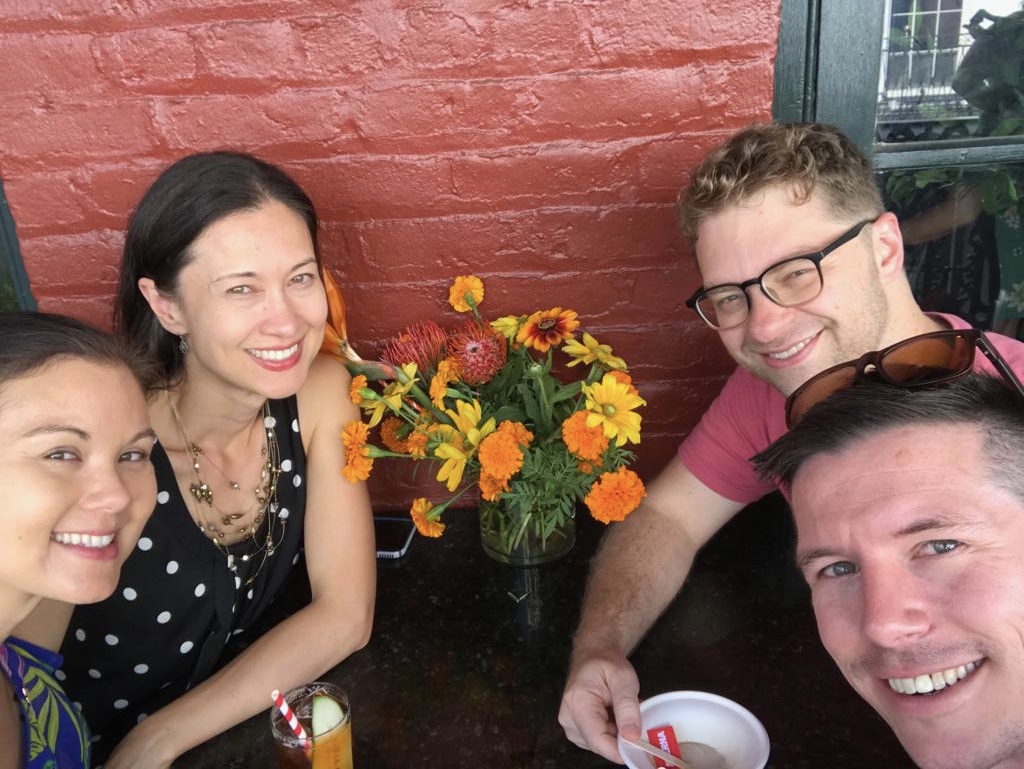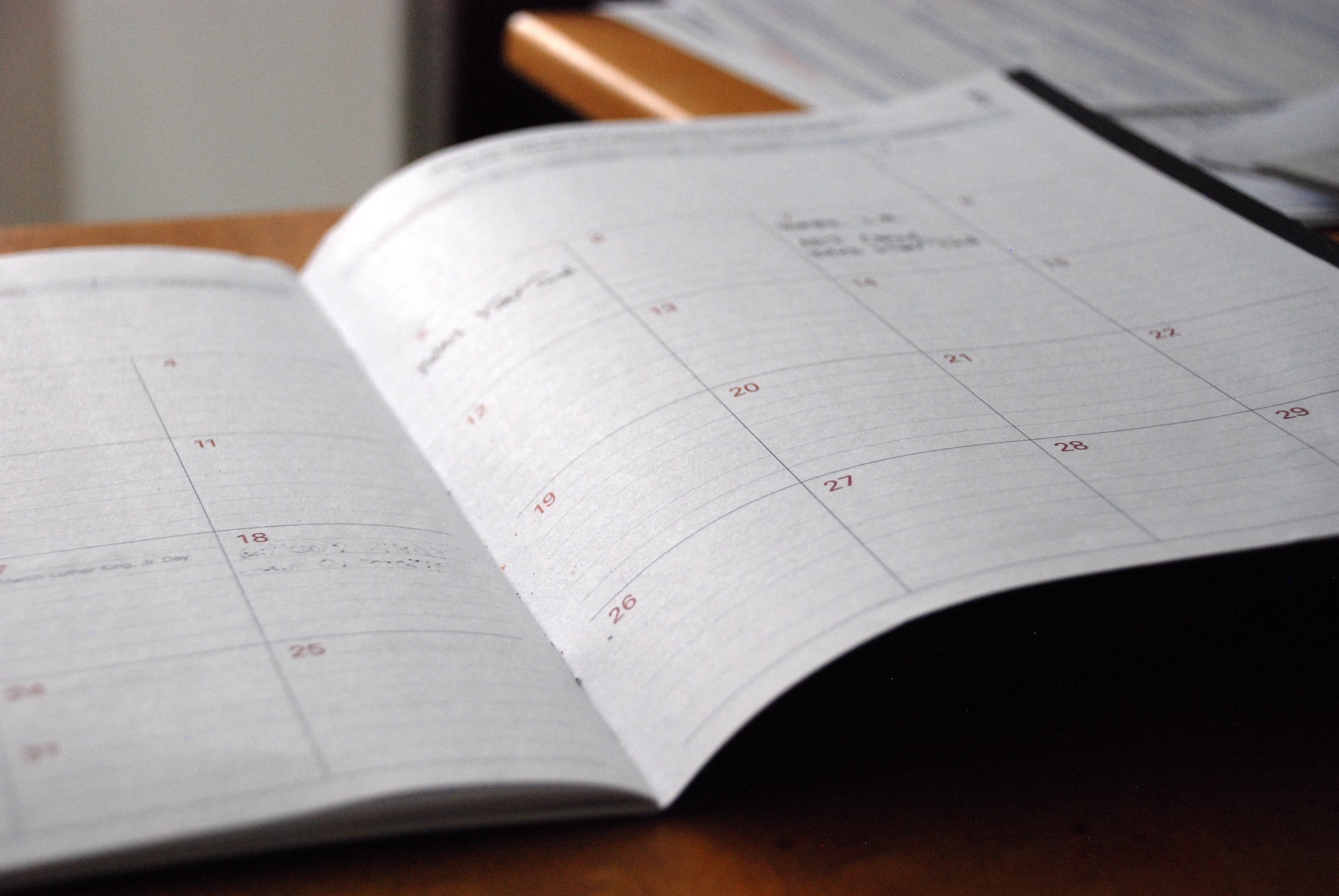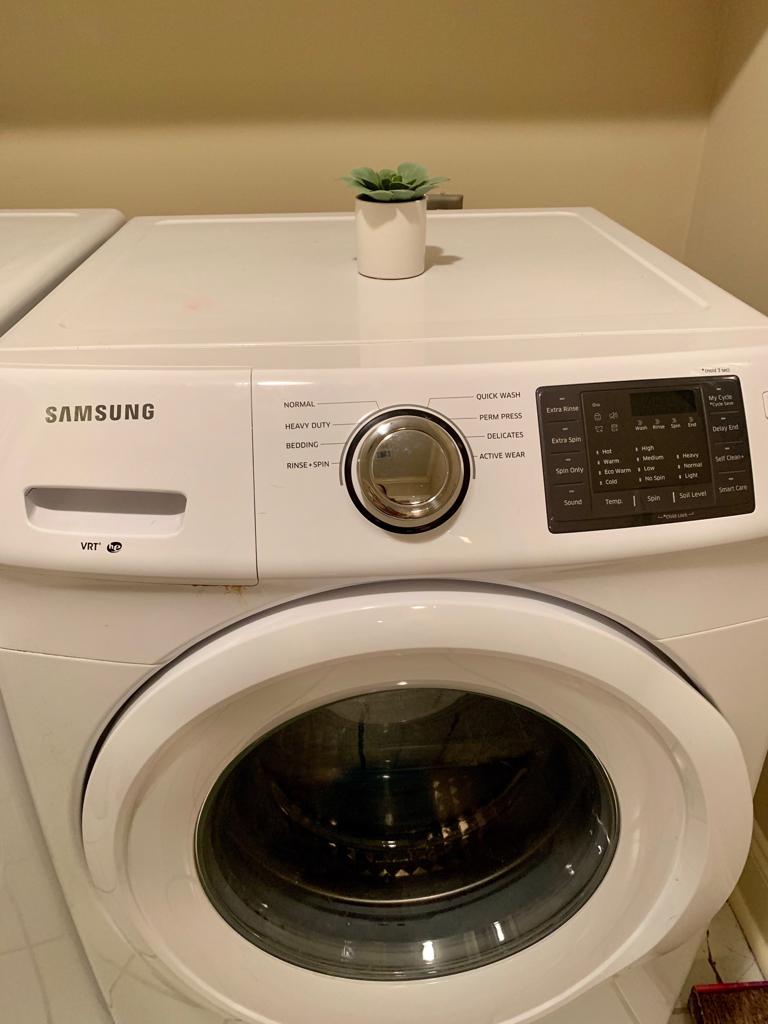We recorded this episode together in person and invited our husbands, Darren and Brian, back for their second guest appearance on the podcast (listen to their first appearance in Episode 8: The Dudes!), to talk about personality types in relationships and in life.
Personality Types in Relationships & Life

We love studying different personality frameworks and what they can teach us about how we can thrive in life – how we can capitalize on our strengths, manage around our challenges, resolve conflicts, and choose the type of work and lifestyle that will make us happiest.
The different frameworks – like the Enneagram, The Four Tendencies, and the Strengths Finder – shed light on different aspects of our personalities. And if you’re skeptical that all of humanity can fit into a limited number of personality categories, think about hair color or eye color. There really are only a handful of main categories that all people have, but plenty of nuance that make your shade of brown different from someone else’s.
All four of us took the free personality assessment at 16personalities.com, which uses the NERIS Type Explorer, a combination of the Myers-Briggs framework with the Big Five, or OCEAN. The NERIS survey tells you which of the 16 personality types you are. Your type tracks to your Myers-Briggs type (which you may already be familiar with) and adds a dash and an extra letter at the end.
You may be able to figure out your own type and the types of the people in your life from listening to the descriptions, and we highly recommend taking the assessment at 16personalities.com. The descriptions are excellent!
The NERIS Type Explorer
The five letters of your type relate to Mind, Energy, Nature, Tactics and Identity.

Mind
The first aspect, Mind, shows how we interact with our surroundings and where we get our energy from. The two letters for Mind are I or E.
Introverted, or (I) individuals prefer solitary activities and get exhausted by social interaction. They tend to be quite sensitive to external stimulation (e.g. sound, sight, or smell) in general.
Extraverted, or (E) individuals prefer group activities and get energized by social interaction. They tend to be more enthusiastic and more easily excited than introverts.
The NERIS Type Explorer gives you a percentage balance for each letter, so you’re not either this or that; you have both qualities in different measures. For example, Melia is around 70% introvert and 30% extrovert and Gill is the opposite, around 30% introvert and 70% extrovert. Brian is a Big E extrovert – he gets his energy from other people, whereas Darren and Melia get it from solitude.
Energy
The second aspect, Energy, determines how we see the world and process information. The letters for Energy are S or N.
Observant (S) individuals are highly practical, pragmatic, and down-to-earth. They tend to have strong habits and focus on what is happening or has already happened.
Intuitive (N) individuals are very imaginative, open-minded, and curious. They prefer novelty over stability and focus on hidden meanings and future possibilities.
It’s interesting that all of us are Ns; it’s the only letter that all four of us share. We’ve all ended up in creative and entrepreneurial pursuits – starting businesses, exploring creative projects and side hustles. One of our favorite things is when we all get together and start brainstorming all the things we want to do.
Nature
The third aspect, Nature, determines how we make decisions and cope with emotions. The letters for Nature are T or F.
Thinking (T) individuals focus on objectivity and rationality, prioritizing logic over emotions. They tend to hide their feelings and see efficiency as more important than cooperation.
Feeling (F) individuals are sensitive and emotionally expressive. They are more empathic and less competitive than Thinking types, and focus on social harmony and cooperation.
Darren and Brian are T’s and Melia and Gill are F’s – they tend to lead from the head, while we tend to lead from the heart. But the guys’ feeling/thinking percentages are pretty balanced: Darren is 57% thinker and 43% feeler, and Brian is almost an even split.
Tactics
The fourth aspect, Tactics, reflects our approach to work, planning and decision-making. The letters are J or P.
Judging (J) individuals are decisive, thorough and highly organized. They value clarity, predictability and closure, preferring structure and planning to spontaneity.
Prospecting (P) individuals are very good at improvising and spotting opportunities. They tend to be flexible, relaxed nonconformists who prefer keeping their options open.
As a J, even in her downtime, Melia likes to have an agenda. She likes to feel like she’s making the best use of her time and feel calmer when things are decided. Gill is a P, but around 60% P and 40% J, preferring to have flexibility within a framework. She can be very structured with certain plans but doesn’t like to be boxed into someone else’s rigid agenda. And all of us enjoy a good Google Doc for planning.

Identity
Finally, the Identity aspect underpins all others, reflecting how confident we are in our abilities and decisions. This is the dash A or dash T after your four-letter personality type.
Assertive (-A) individuals are self-assured, even-tempered and resistant to stress. They refuse to worry too much and do not push themselves too hard when it comes to achieving goals.
Turbulent (-T) individuals are self-conscious and sensitive to stress. They are likely to experience a wide range of emotions and to be success-driven, perfectionistic and eager to improve.
Gill and Melia are Turbulent types, more sensitive to stress, worry, and self-doubt, whereas Darren and Brian are Assertive identity types and tend to be more confident and even keel. The turbulent identity – which we wish had a more neutral name! – can also be a strength in working to improve yourself and your circumstances and having peak experiences even though they also have valleys (higher highs in spite of lower lows).
It can be a good balance in a romantic relationship because the turbulent type can keep things interesting and the assertive type can keep things from going off the rails.
Our Individual Types
Melia – INFJ-T – The Advocate
People with this personality type tend to see helping others as their purpose in life. Advocates can often be found engaging in rescue efforts and doing charity work. However, their real passion is to get to the heart of the issue so that people need not be rescued at all.
Strengths: creative, inspiring and convincing, decisive, determined and passionate, altruistic and insightful
Challenges: can be sensitive, extremely private, perfectionistic, always need to have a cause, can burn out easily
Darren – INTJ-A – The Architect
Architects are open to new ideas as long as they’re argued well. People with this personality type are even (maybe especially) open to ideas that go against their own if the thinking is sound. They often apply their openness and independence when thinking about matters like alternative lifestyles. Mix this with their dislike for rules and traditions, and it’s easy to see how Architects might lean toward more tolerant social views.
Strengths: quick, imaginative and strategic mind, high self-confidence, independent and decisive, hardworking and determined, open-minded, jacks of all trades
Challenges: can be arrogant, judgmental, overly analytical, loathe highly structured environments, clueless in romance
Gill – ENFP-T – The Campaigner
The Campaigner personality is a true free spirit. They are often the life of the party, but unlike types in the Explorer Role group, Campaigners are less interested in the sheer excitement and pleasure of the moment than they are in enjoying the social and emotional connections they make with others.
Strengths: curious, observant, energetic and enthusiastic, excellent communicators, know how to relax, popular and friendly
Challenges: can have poor practical skills, find it difficult to focus, overthink things, get stressed easily, highly emotional, independent to a fault
Brian – ENTJ-A – The Commander
(Brian also got ENFJ-A – The Protagonist when he took the quiz – ENFJ-A, and as someone with a balanced T-F split, he relates to certain characteristics in each. In short, the strengths seemed accurate but not the weaknesses!)
Commanders are natural-born leaders. People with this personality type embody the gifts of charisma and confidence, and project authority in a way that draws crowds together behind a common goal. However, Commanders are also characterized by an often ruthless level of rationality, using their drive, determination and sharp minds to achieve whatever end they’ve set for themselves.
Strengths: efficient, energetic, self-confident, strong-willed, strategic thinkers, charismatic and inspiring
Challenges: Can be stubborn and dominant, intolerant, impatient, and arrogant
Get It Together / Got It Together
We each share something that’s going well for us at the moment, and something else that we’d like to work on. This time we do a couples’ version.
Gill & Brian:
- Get It Together: Not engaging in plans that are coming up soon
- Got It Together: Pulling off a big trip to the States
Melia & Darren:
- Get It Together: Managing Avery’s newfound strong willpower on top of our existing strong-willed son
- Got It Together: Engaging meaningfully with optimization material – clutter-clearing wins like the laundry room and entryway bench

Get In Touch
What did you learn about your own personality type and the types of people in your life as you were listening, and how can you use this to thrive in life? Tell us at podcast[at]semitogether.com, or send us a voice memo. Leave a comment on our latest Instagram post at @semitogether or tweet at us: Gill is at @traveling2taste and Melia is at @meliadicker.
We’d also love it if you’d subscribe, rate, and review this podcast on Apple Podcasts or wherever you listen. It helps other people find the podcast who might need to hear that they’re not alone!